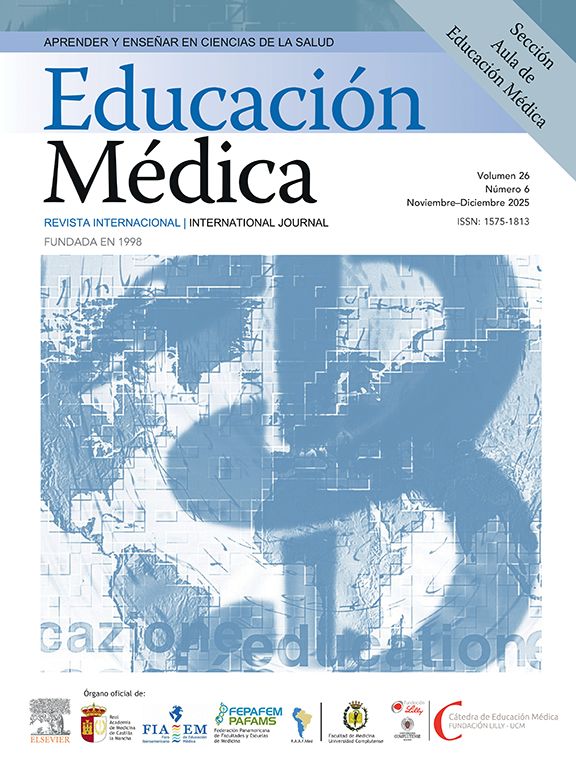There has been a shift in the understanding of brain, neurons, and their functional role over the last two decades. Earlier it was believed that the brain was a static organ and was not subject to any change throughout life. An understanding was developed later that brain reorganizes its structure by a specific property called neuroplasticity. Recent research shows that the brain generates new neurons even in the adult stage, and this process is called adult neurogenesis. Although researchers still not have all the answers about the newborn neurons, and why and how they are generated, and what is their role, some have highlighted the importance of these in learning and memory formation, and even in memories of fear and spatial navigation. A wide range of environmental experience influences the generation of newborn neurons and their functional variability. There are questions about how different environmental experiences cause the differences in the generation of new neurons. Recently the field of optogenetics attempted to answer the questions on adult neurogenesis. However there are still questions about adult neurogenesis which needs a more naturalistic approach, for their better understanding.
No ha habido un cambio en la comprensión del cerebro, las neuronas y su papel funcional de las últimas 2 décadas. Anteriormente se creía que el cerebro es un órgano estático y no está sujeto a ningún cambio durante toda la vida. La comprensión se desarrolló más tarde, que el cerebro reorganiza su estructura por una propiedad específica llamada neuroplasticidad. Investigaciones recientes muestran que el cerebro genera nuevas neuronas, incluso en la etapa adulta, y este proceso se llama neurogénesis adulta. Aunque por ahora los investigadores no tienen todas las respuestas sobre las nuevas neuronas nacidas y por qué y cómo se generan, y cuál es su papel. Algunos han puesto de relieve la importancia de las neuronas recién nacidas en la formación del aprendizaje y la memoria, e incluso en los recuerdos de miedo y la navegación espacial. Una amplia gama de experiencia ambiental influye en la generación de neuronas recién nacidas y su variabilidad funcional. Hay preguntas acerca de cómo la variada experiencia ambiental ocasiona diferencias en la generación de nuevas neuronas. Recientemente, el campo de la optogenética intentó responder a las preguntas sobre la neurogénesis adulta. Sin embargo, todavía hay preguntas sobre la neurogénesis adulta que necesitan de un enfoque más naturalista para su mejor comprensión.
It was initially believed that brain is static organ, and is not subject to any change throughout life. This was followed by an understanding that brain can be reorganized by its special property called neuroplasticity, in which the brain is constantly organizing its structure by changing connections between neurons. Now most recent discoveries even show that there are newly born neurons in the brain which play an important role in the process of learning and memory formation. The discovery that human brain endures to produce neurons even in the adult brain confronts major dogma in the field of neuroscience, however the role of such newly born neurons in the behaviour and cognition is still not clear. The new born neurons in the hippocampus region of brain are critical for the formation and retrieval of memory. There has been a period of controversy regarding the functional role of adult born neurons, and some were of the view that they have no role in adult brain. However there came some breakthrough studies which help in understanding the role of adult neurogenesis. In a recent article the authors have extensively reviewed the literature and garnered evidences that silencing newborn neurons result in impairment of memory.1 The article directly supports the idea that generation of neurons in the brain may be of grave importance in the overall process of learning and memory formation. Authors of the aforementioned article even suggest that new born neurons form connections with existing neurons in the adult brain. The authors have deeply analyzed vast amount of literature on environmental factors that influence the generation of new neurons in the hippocampus of adult brain, a region which plays an important role in learning and memory formation.1 Such newly formed neurons may help organisms adapt changing environment and circumstances. There are number of studies which show that early environment affects the later development epigenetically primarily by DNA methylation and chromatin modification.2–4
The studies now are clear that environmental interaction could generate neurons in adult brain which has critical role in learning and memory formation. It is said that generation of newly neurons help fine tune the hippocampus to predicted environment. Depending upon the type of environmental experiences each individual is worked out to optimize the brain depending upon weather there is seeking out rewarding experiences or avoiding stressful experiences. However how the hippocampus and the formation of neurons function for the retrieval of adaptive memory still remain to understood and need more naturalistic environmental conditions, for better understanding. With recent research advances it is becoming increasingly clear that wide range of mammalian species have profound effect on adult brain due to environmental influences. It is also been clear through research that stressful experiences has the role to reduce the number of hippocampal neurons, and in contrary the rewarding experiences cause an increase in the number of new neurons in the hippocampus. A number of studies present evidences that stress induced experiences persuade the suppression of adult neurogenesis.5–7 Significant changes in the hippocampal structure and synaptic plasticity of rats were observed in later life by receiving low maternal care during the early postnatal period.8,9 As adult neurogenesis is also having role in behavioural and cognitive processes therefore stress has been associated with impairment of cognitive based hippocampal tasks for example spatial navigation learning and object memory. Stressful experiences are also shown arose an anxiety like behaviour, however in contrary a reduction in anxiety are associated with rewarding experiences and an improved performance on hippocampus based cognitive tasks.
Although it is not known, whether neurons produced in relation to any particular environmental experiences are geared towards the recognition of that experience in future or help to adapt other similar environmental condition. Recently it is proposed that stress related increase in anxiety and inhabiting exploration help improving the chances of survival.1 In contrary to that reward modelled brain does the same by increasing chances of survival in low stress and high reward environment. It seems thus stress also play a role for increasing efficiency of an individual but when controlled at its earlier periods; however continued stress may impair the neuron information. It could be assumed that the outcome of complex interaction between environment and organism does influence the generation of newly formed neurons that help adapt modifications of environment. This may however help increase survival strategies by modulating behaviour, as the environmental interaction are the first step in bringing up modulation in behaviour.10 Further this leads to the contention that the function of the neurons are not necessarily limited to the coordination but have a role for designing and preparing the organism against the stressful environment.
New techniques have been developed to test the function of new born neurons in the adult brain and one such technique is optogenetics. In studying adult neurogenesis this technique is used to control new born neurons and help in tracing functional role of such neurons in hippocampus. The hippocampus is the premier area of the brain, where adult brain neurons are generated. Although considering the functional role of new born adult neurons, significant controversy is surrounded. However strong evidence from studies that show adult new born neurons play significant role in the process of learning and memory formation are present.11 Such neurons are also important for two essential aspects of learning which are modified by experience such as contextual fear memory and spatial navigation memory. Such findings can also help to diagnose adult brain related disease such as Alzheimer's and Dementia which may then further lead to treat them at earliest. In addition increased advances in research based cell replacement therapy may help in investigations of memory related neurological disease. The newly developed technique optogenetics can play an important role in understanding the brain and behaviour related problems. It is used to label neurons by light illumination and study their functional role. This way optogenetics helps understand in-depth exploration of circuit and behavioural functions of the newly born adult brain neurons. Researchers from the same study11 have also observed specific function of adult newborn neurons, when they silenced 4 week older neuron which is an age considered as critical and responsive for changes. It was observed that it impaired the memory retrieval for tasks which are known to depend upon the functions of hippocampus. The technique like optogenetics can also be used to examine newly born neurons of other brain regions. Besides this it is believed that it may help in tracing brain and behaviour related problem in neurocircuits, and can lead to better understanding about wide range of behavioural problems. The work has already been started which shows that memories formed in the present generation can be passed to at least three generations later. The effect of starvation has been observed in round worm Caenorhabditis elegans to induce changes in small RNAs which are inherited at least up to three consecutive generations without the involvement of DNA.12 An abnormal condition of fear generally called as phobia is also found out to pass from generation to generation and carry on the phobic experiences.13,14 Prolonged stress plays a role in deteriorating adaptive functions of the organisms, this further lead the development of enhanced anxiety and symptoms of depression. Further this leads to other contention why stress itself is so selective in causing positive or negative outcome. If it is time at which the stress occurs or that the place and other selective environment in a wide range of experiences influences such selective outcomes of stress. Such findings play an important role in understanding many things about how brains newer neurons are created, are they environment specific? How and why the brains memory malformation takes place which result into memory disability. Asking these questions it can be assumed that the DNA of the newly formed neurons must be ingrained by the new information which mostly develops by the complex interaction through wide range of environmental experiences? Further it is assumed that such neurons may help in the build up of the brain with respect to those complex environmental interactions that had probably the primary reason for their genesis? These questions can be understood if the findings like adult brain neurogenesis could be studied in the real world. Most importantly there is a need to understand the learning and memory formation by also considering the behaviour modification in relation to the wide range of environmental experiences. These things can be understood by replicating the natural environment consisting of every precise detail at its real time. Additionally this can also give us an idea about how different experiences impact the brain and how efficiency of the brain can be increased in future.
FundingNil.
Conflict of interestThe author has no conflicts of interest to declare.
The author is thankful for the chairman department of Zoology and the host institution Aligarh Muslim University for the providing facilities for this research.








